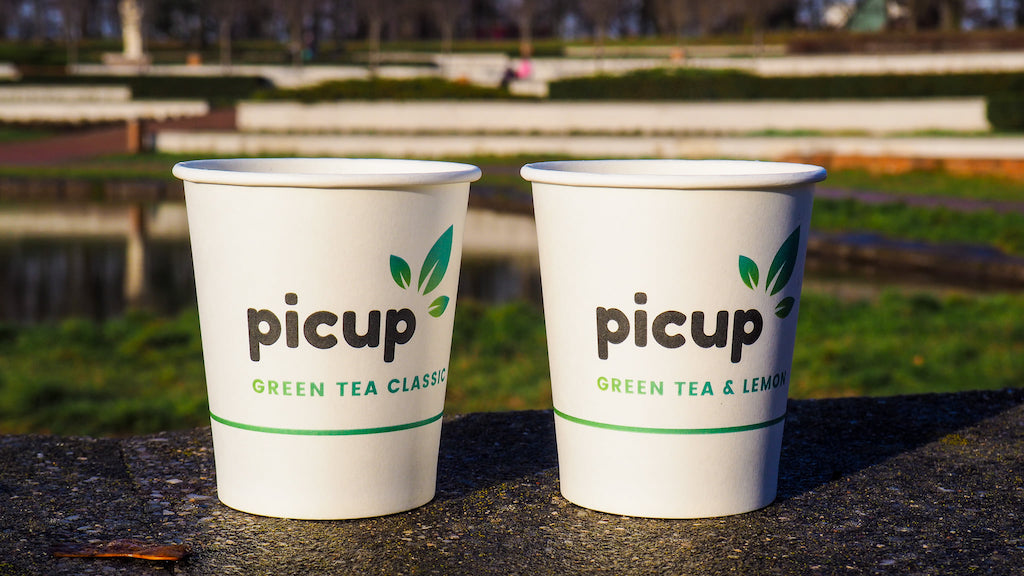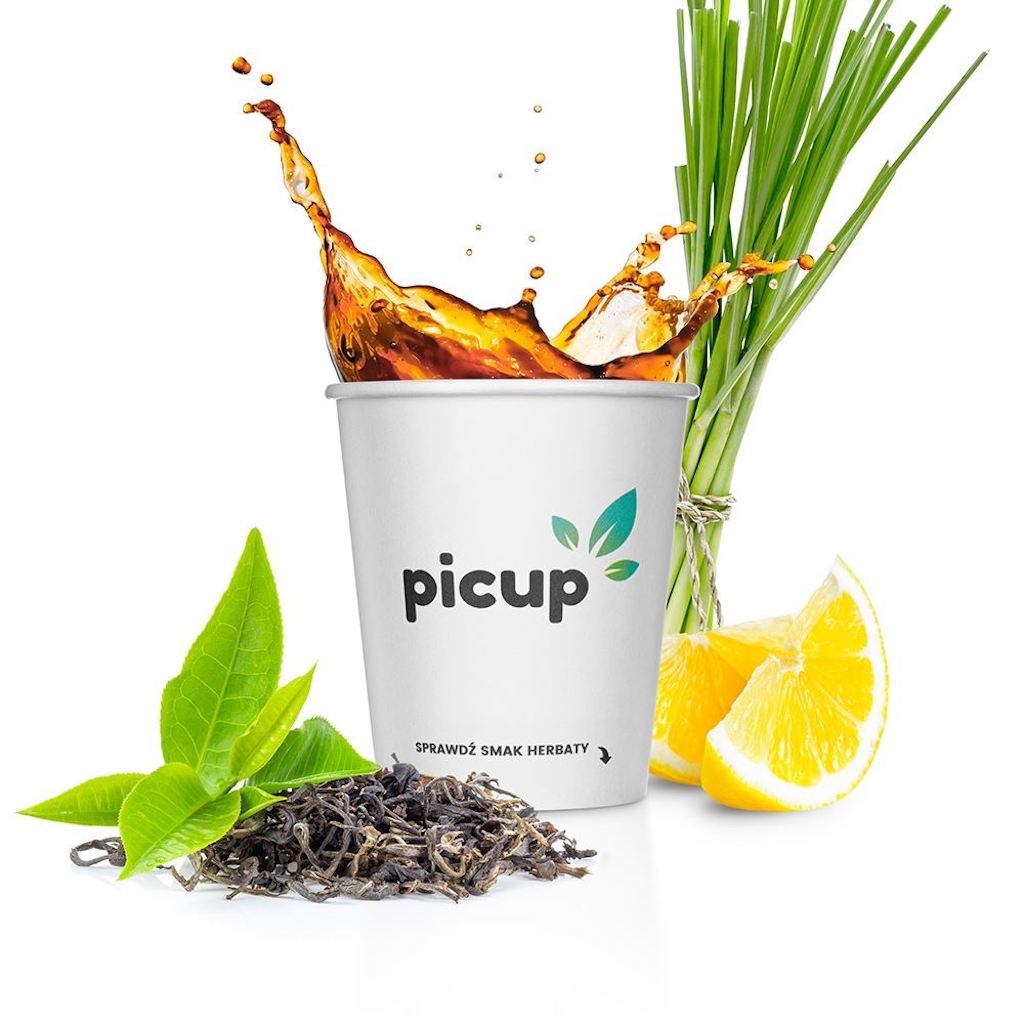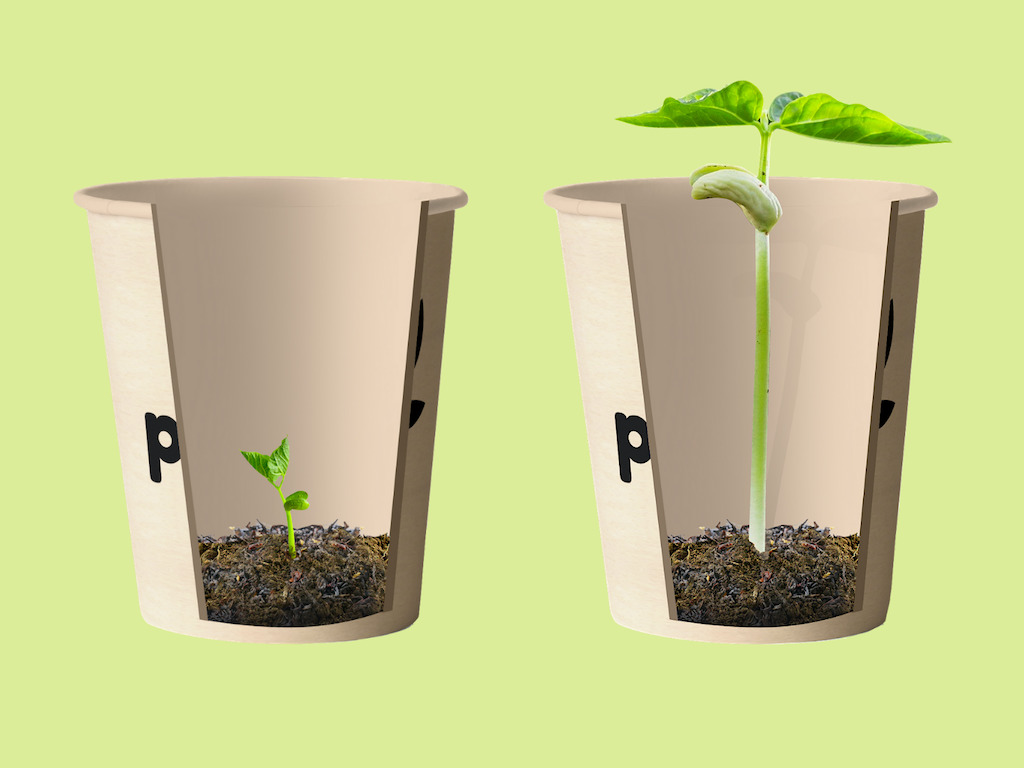3 Mins Read
Picup has launched its plantable paper cups in Poland, the first-of-its-kind in the country and across Europe. The Poznan-based startup’s 100% biodegradable cups of tea or coffee contain seeds at the bottom of the filter, allowing a tree to grow after the drink is consumed.
Polish sustainable packaging startup Picup has introduced Europe’s first-ever plantable cups that can grow a tree after it has been used. These cups, created with the startup’s patented technology, is the first easy-to-use disposable cup designed for coffee, tea or other hot beverages that is 100% biodegradable and plantable.
At the bottom of each paper-based cup is a filter that contains tea leaves or coffee grounds, and buried under that are heat-resistant seeds that germinate and grow once the beverage has been consumed, with the leftover grounds or leaves acting as natural fertiliser for the plant.

We are making efforts to make these products available in the major food chains and coffee stores, and on major online platforms.
Marcin Grzymislawski, Founder, Picup
After initially rolling out their product in Poland in February, Picup says it plans to launch in several markets across Europe as well.
“We are making efforts to make these products available in the major food chains and coffee stores, and on major online platforms,” said founder Marcin Grzymislawski.
Grzymislawski says that Picup is unique because current packaging solutions that are deemed more sustainable, such as paper-based cups, often contain oil-based linings that make the end product difficult to recycle and not fully biodegradable. These also fail to tackle the growing amount of waste produced by single-use packaging, while Picup’s solution will actively repurpose the cup into an eco-friendly planter.
For businesses that provide on-the-go services, such as coffee chains where customers may not always bring their own reusable cups, Picup provides an instant, convenient, practical alternative that leaves behind a lighter footprint on the planet and can work with brands to customise cups with their brand logos.
“Our team has done an excellent job to create a unique design that is practical and we are in the process of coming up with more packaging solutions that are environmentally-friendly and sustainable,” explained Grzymislawski.

Currently, Picup’s range of products include premium instant teas and coffees, from herbal ginger and hibiscus teas and CBD-infused leaves, to black, white and cream coffee. Picup can also work with businesses to develop plantable cups of instant juices and shakes, which can also turn into a plant in its afterlife.
Ultimately, the young Polish startup says its goal is to continue innovating solutions that will help “transform the way consumers eat, drink and live”.
Our team has done an excellent job to create a unique design that is practical and we are in the process of coming up with more packaging solutions that are environmentally-friendly and sustainable
Marcin Grzymislawski, Founder, Picup
At our current rate of unsustainable consumption of disposable items, which has only increased amid unsubstantiated pandemic-related fears about reusables, most cities will be left to tackle overflowing landfills in just a few years time, while plastic in our oceans will outweigh fish by as soon as 2050. In Hong Kong alone, the number of disposable plastic takeaway items consumed has now reached 100 million every single week.
While scientists have reiterated that reduction and reusing items will be the key, novel packaging solutions and technologies will also be necessary if we are to make a dent on the waste crisis.
Other startups that are now innovating sustainable packaging solutions that can be easily integrated into businesses and supply chains range from Hong Kong-based Distinctive Action’s water-soluble and compostable plastic bags to London-based Nopla’s seaweed-based flexible food-grade sachets that biodegrade in weeks.
All images courtesy of Picup / lead image designed by Green Queen Media.




